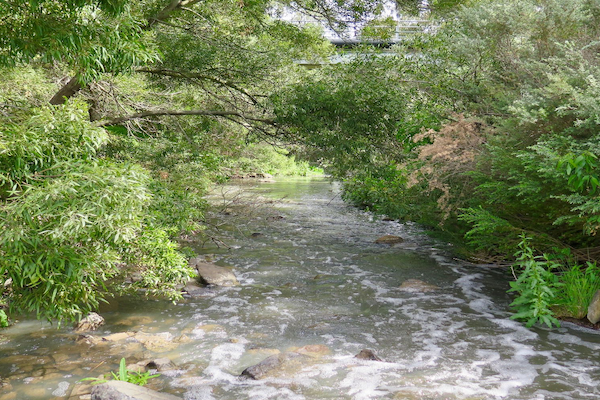Protecting streams in our cities: understanding how ‘general environmental duty’ and ‘state of knowledge’ can help transform stormwater management
This project brings together expertise from the Faculties of Science, and Architecture, Building and Planning, and the Melbourne Law School, with external partners from Environmental Justice Australia, EPA Victoria, Melbourne Water, Department of Environment, Land, Water and Planning, Victoria University and the CRC for Water Sensitive Cities.
Summary
Urban stormwater is a significant diffuse source problem for cities, causing recurring and cumulative impacts on built environments and receiving waters such as streams, wetlands and bays.
This interdisciplinary project will investigate how better integration of legal mechanisms, scientific and socio-technical knowledge can drive transformative stormwater management that protects waterways whilst producing co-benefits such as climate resilient water supplies, flood mitigation, urban habitat, greening and cooling.
The incoming Environment Protection Amendment Act 2018 will shift the regulatory regime from being reactive to harms caused after an event, to a preventative regime that prioritises avoiding harms by making risk management a primary obligation.
This project will scope the transformative potential of two key concepts at the heart of the Act: ‘general environmental duty’ and ‘state of knowledge’, and how they relate to stormwater management. It will clarify legal, normative and practical perspectives by asking:
- What contributes to the legal standard of the ‘state of knowledge’?
- What should contribute to the ‘state of knowledge’?
- What contributes to the ‘state of knowledge’ in practice for key actors?
- How does one key actor, in particular, translate their view of the ‘state of knowledge’ into obligations for others?
By substantively engaging stakeholders in answering these questions, the project will make legal, conceptual and practical contributions to the growing environmental problem of urban stormwater and identify pathways for deepening and amplifying those contributions in future projects. The understandings developed in relation to stormwater will contribute to larger lessons about evidence-based environmental regulation and management of the broader suite of harms and controls relevant to the general environmental duty. It will also contribute to larger debates about the intersection between law, policy, scientific knowledge, and the social nature of making and using evidence.
Project lead: Yung En Chee
